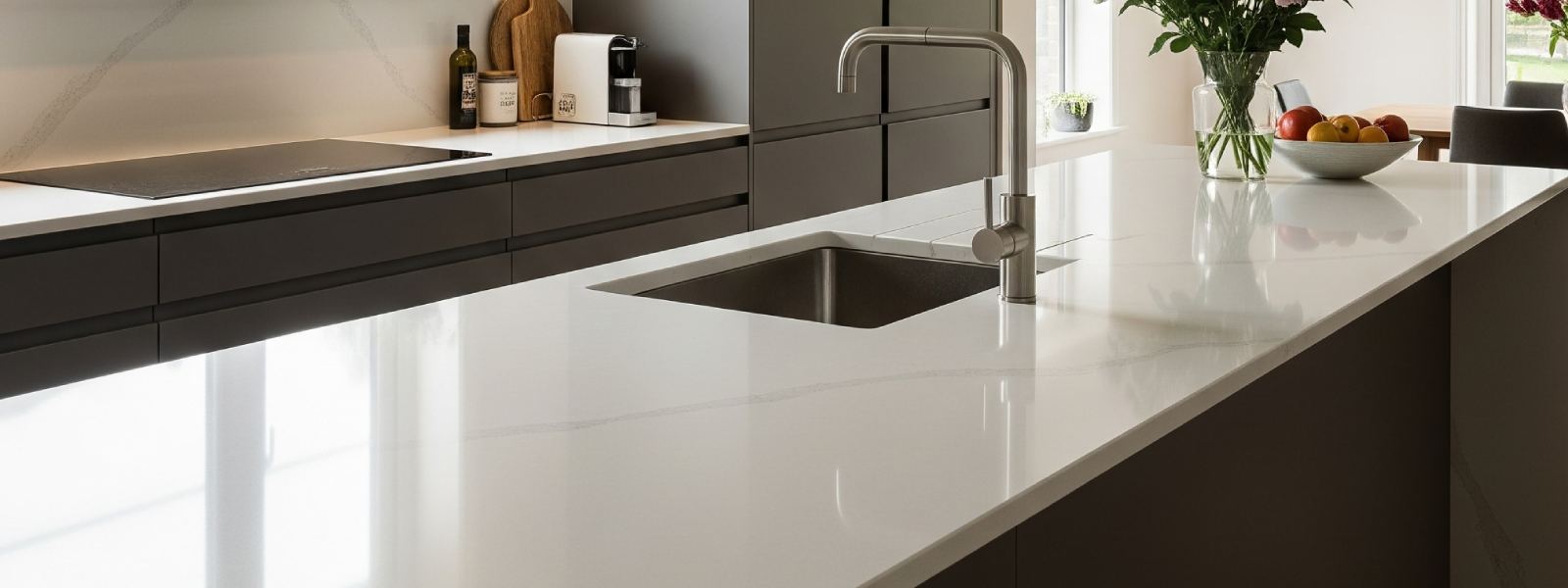A porcelain slab showcases immense beauty and practical qualities that can renew your space. But all materials have trade-offs. You may experience these porcelain slab problems over time:
1. Chipping or Cracking
Cracks and chips can happen for various reasons. They can be caused by sudden impact, ground movement, or the material expanding and shrinking, especially if it wasn’t installed correctly or the base isn’t flexible enough.
2. Staining and Discolouration
Even though porcelain is stain-resistant, stubborn stains can still appear. Avoid using harsh cleaning products for stain removal to prevent further staining and discolouration. Wipe the surface with a baking soda paste or vinegar solution.
3. Slippery Surfaces
The polished finish of a porcelain slab can make it slippery, especially when wet. Choose textured or matte porcelain tiles, use anti-slip mats or apply special non-slip coatings to avoid slips.
4. Damaged Expansion Joint
Porcelain slabs in Melbourne can also expand and shrink because of temperature changes. If proper gaps are not filled with flexible material, this movement causes stress, leading to cracks.
To avoid this, use flexible grout or sealant in those joints to ensure enough space is left between the slabs and walls.
5. Shifting or Wobbling Slabs
Porcelain slabs can shift if the ground is not firm enough, the mortar is not mixed right, or the primer is not used correctly.
To avoid this, ensure the ground or base where the slabs are going is firm and perfectly level. Always apply the correct type and mix of mortar and special primer liquid, so the porcelain slabs bond strongly to their base.
Design Elegant Surfaces with Porcelain Slabs
Achieve sophisticated surfaces by integrating porcelain slabs into your home. Whether installed as a benchtop or flooring, you can effortlessly elevate the look and efficiency of your space. Contact Stone Interiors today to have your porcelain installed by our experts!


